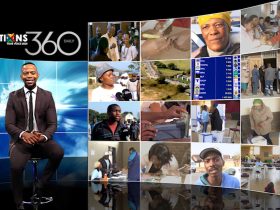In support of economic recovery and to boost youth employment, the government has proposed R5.2 billion in tax relief while the Department of Small Business Development has announced plans to support at least 15 000 youth-owned enterprises. Although the proof is still in the pudding, this is a step in the right direction given that small businesses are the backbone of the economy and youth unemployment is one of South Africa’s biggest and most pressing problems. To ensure that the proposed measures have the desired outcome of small business development and youth employment creation, it is necessary that all stakeholders are involved – from government agencies to private sector players and educational institutions. This will help achieve a greater level of collaboration in order to truly understand what support and development small to medium-sized businesses really need to thrive. This will also be essential if we’re to successfully match job creation and skills development to a growing workforce to address youth unemployment.
Understanding the bigger impact
In order to properly respond to the after-effects of the Covid-19 pandemic, we first need to understand it. While we know that there were companies that closed their doors, we are yet to see the total impact of Covid-19 on small to medium-sized businesses. This makes it critical to conduct a baseline study to understand exactly where we were prior to the pandemic and where we are now. Particularly from an entrepreneurial and small business perspective. While there has been a measure of support available through grants and business assistance during the pandemic, such support targeted mainly at the smaller businesses within the formal sector. .
Properly utilising existing resources
Small, Medium and Micro Enterprises (SMMEs) are crucial for the redevelopment of our local economy and these proposed interventions from the government can provide much-needed relief. They however do need to be channelled correctly through existing small business development resources, such as the Small Enterprise Development Agency (SEDA), the Cooperatives Incentives Scheme and the Black Business Supplier Development Programme. From a youth development perspective, the Umsobomvu Youth Fund and the National Youth Service have already been established for the purpose of helping our youth set up, expand and develop their businesses by teaching them essential business skills. Youth Advisory Centres (YACs) have been established around the country, providing walk-in facilities for youth to receive information, training and referrals. Funding can be facilitated through agencies like Khula Enterprise Finance and the South African Micro-Finance Apex Fund, as they all have their own criteria and processes and service providers to ensure that we achieve the desired trickle-down effect towards beneficiation and job creation.
Support structures for growth
Functionally, we need a more defined, structured process around entrepreneurial establishment and growth in the country, such as the establishment of more entrepreneurial hubs that are accessible to those who need them. All the various small business development agencies need to come together at these hubs to facilitate business support in one easily accessible location within our living spaces. In addition, business support interventions like manufacturing hubs will be critical for growth. Here, multiple businesses share access to expensive manufacturing equipment that they would not be able to achieve alone.
Educational foundations
Focusing on economic redevelopment requires the allocated funds to be properly utilised, which means starting at an educational level. In order to properly channel their strengths, career counselling at school needs to begin with an assessment of whether an individual is an entrepreneur or an employee. At school level, general entrepreneurial programs are required, as well as community-wide support programmes. In terms of skills development, there needs to be a rebranding campaign for blue-collar or artisanal trades. Our economy doesn’t need more lawyers or accountants to rebuild. Instead, school learners need to realise that entering a trade or acquiring a critical skill that is in shortage is the best way to ensure employability and to earn a living reliably. For example, every year the government releases its list of critical skills. This is a missed opportunity for youth skills development, as we have the potential right under our noses – all we need to do is identify their potential and develop these critical skills within our own borders, by creating the necessary educational, training and support structures that help to make the youth employable, while creating employment opportunities through entrepreneurial development.
Developing on the right idea
While the government has all the right intentions with small business support and youth development, it’s going to take a lot of focus and collaboration in order to properly understand what the needs are in this sector. Without this understanding, it’s simply throwing money at a problem. By properly defining and appreciating what the entrepreneurial needs are, we can then start to define how entrepreneurs can best be developed to encourage employment, which will in turn have the consequence of creating youth employment opportunities, for which the youth need to be adequately trained, equipped and skilled in order to be employable.
























Leave a Reply